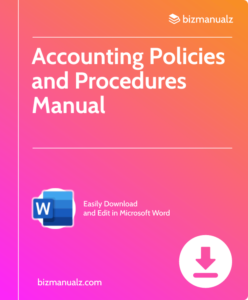What are FASB Accounting Standards?

FASB accounting standards are a linchpin of accurate financial reporting. They create uniformity and transparency that allow meaningful comparisons between companies. These standards provide a consistent structure to ensure financial statements are compliant with Generally Accepted Accounting Principles (GAAP). Companies that adhere to these standards can build trust with investors and stakeholders. What are FASB accounting standards?
Overview of FASB Accounting Standards
FASB Accounting Standards are rules that regulate how businesses report their finances. These standards help make sure financial statements are accurate and consistent. This helps people like investors and creditors make informed decisions.
Moreover, FASB standards address complex transactions such as revenue recognition, leases, and inventory valuation. They require disclosure of pertinent information to inform decision-making. The board also updates their standards to keep up with changing business practices.
To effectively implement FASB accounting standards, companies must stay current on the board’s pronouncements. This can be done through monitoring their website or subscribing to alerts. Engaging professional accountants or consultants can help interpret and apply these standards accurately.
Companies should also invest in internal controls and systems that facilitate adhering to FASB standards. This decreases the risk of errors while boosting understanding through regular training sessions. Adopting these standards is a must for sustainable growth in a global marketplace where standardized reporting is valued.
Here is a table of some key FASB Accounting Standards:
| Standard Number | FASB |
|---|---|
| ASC 606 | Revenue from Contracts with Customers |
| ASC 842 | Leases |
| ASC 815 | Derivatives and Hedging |
| ASC 330 | Inventory |
| ASC 840 | Leases (Legacy Standard) |
These standards cover different topics like revenue, leases, derivatives, and inventory. Each one has its own set of rules and guidelines that businesses must follow when making financial statements.
Businesses must stay up-to-date on FASB standards to avoid any problems. If they don’t follow the standards, it can lead to false information. This might cause stakeholders to make bad decisions.
To make sure they don’t miss any changes, companies should regularly review and apply new guidelines. Doing this will show investors and other parties that the company is reliable.
Classification of FASB Accounting Standards
FASB accounting standards are classified into three categories:
- GAAP stands for a set of accounting principles and guidelines used in the US. These standards promote consistency and transparency across different companies and industries.
- IFRS represents a unified framework for financial reporting used by global firms. It encourages comparability and transparency among financial statements from different countries.
- EITF interpretations handle emerging issues in financial reporting. They keep accounting standards up-to-date with the ever-changing business world.
Familiarize yourself with FASB accounting standards to ensure accurate and compliant financial reporting practices. It’s like untangling headphones – difficult, slow, and there’s always one wire missing.
Process of developing FASB Accounting Standards
The FASB accounting standards need to be developed. It’s a 5-step process:
- Spot the problem or issue
- Research and analyze
- Create a formal proposal
- Show it to the public
- Finalize and issue
This way, all views are taken into account. For more info, check out the FASB website and join the comment letter process. Get ready for the ride, it’s wild!
Impact of FASB Accounting Standards
The importance of FASB accounting standards is huge. These standards make sure that financial reporting is accurate, consistent, and transparent. They give companies instructions to follow, helping them stay honest in their financial statements.
Let’s explore how FASB accounting standards affect us:
| Impact | Description |
|---|---|
| Improved Transparency | FASB standards require companies to share data with stakeholders openly, encouraging trust and responsibility. |
| Enhanced Comparability | Consistent guidelines and principles help users compare financial data between companies accurately. |
| Better Decision-Making | Reliable and standardized financial records due to FASB standards mean investors can make wise choices about resources. |
| Strengthened Investor Confidence | The standards boost investor trust by showing a company’s financial well-being and reduce fraud. |
Moreover, FASB accounting standards tackle fresh business activities, like the rules for revenue recognition in the digital world and leasing arrangements.
It’s essential to consider the real-life effects of these standards. XYZ Corporation, for instance, was in trouble with its financial reporting before using FASB accounting standards. This caused discrepancies in its records and made investors anxious.
After adopting the standards, XYZ Corporation changed significantly. Their financial records were more trustworthy, leading to greater investor confidence and fresh investments. Plus, greater transparency helped XYZ Corporation become a dependable player in its industry.
Show off your know-how of FASB accounting standards at your next social event – it’s a surefire way to impress your friends!
FASB Accounting Standards
We’ve finished talking about FASB accounting standards. It’s evident these standards are vital in making sure financial info is transparent and consistent. Plus, they offer businesses principles to follow. FASB’s mission is to improve financial reporting.
We looked into the objectives of FASB standards. These include enhancing how financial info is comparable, reliable, and relevant. We also saw how these standards come about through a detailed process with input from different stakeholders.
We discussed certain FASB standards like revenue recognition (ASC 606) and leases (ASC 842). These address financial reporting, giving businesses guidance. By implementing these, companies can be sure their financial statements fully reflect their operations and finances.
It’s essential for organizations to stay up-to-date with the newest FASB standards to remain compliant and maintain public trust. As FASB issues amendments and pronouncements, organizations must adjust their accounting practices. This needs continual learning and good communication within the finance team.
Pro Tip: Finance pros should attend workshops, seminars, or webinars about FASB standards to gain understanding and stay informed on updates. Being proactive in keeping up with changes will help individuals implement standards in their organizations, helping make financial reporting more transparent and consistent.
Frequently Asked Questions
FAQs about FASB Accounting Standards
Q: What is FASB?
A: FASB stands for Financial Accounting Standards Board. It is a private, non-profit organization that establishes and improves accounting standards in the United States.
Q: What are FASB accounting standards?
A: FASB accounting standards are a set of rules and guidelines that dictate how financial statements should be prepared and presented. These standards ensure consistency and transparency in financial reporting.
Q: Why are FASB accounting standards important?
A: FASB accounting standards are important because they provide a framework for accurate and reliable financial reporting. They help investors, creditors, and other stakeholders make informed decisions based on trustworthy financial information.
Q: How are FASB accounting standards developed?
A: FASB accounting standards are developed through a public, transparent process that includes input from various stakeholders. FASB conducts extensive research, solicits feedback, and holds public meetings before finalizing any standard.
Q: Are FASB accounting standards mandatory?
A: Yes, FASB accounting standards are mandatory for most public companies in the United States. However, some standards may only apply to specific industries or situations.
Q: Where can I find the latest FASB accounting standards?
A: The latest FASB accounting standards can be found on the FASB website (www.fasb.org). They are regularly updated and available for free to the public.
















Leave a Reply